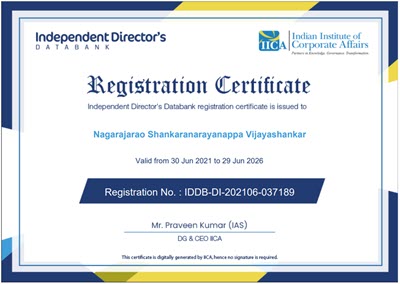We opened up a discussion yesterday on the challenges before a digital marketing or a digital advertising company after the advent of Data Protection laws such as DPDPA.
Advertising is focussed on the five principles namely creating Awareness, Interest, Desire besides informing about the availability and enhancing the post purchase satisfaction.
The Advertising has the responsibility of converting the marketing strategy through appropriate communication to bring desirable changes in the buying behaviour. The advent of Artificial intelligence (AI) has enabled advertisers to analyse the buying behaviour of a prospective consumer and derive better communication strategies.
On the other hand the approach of Privacy and Data Protection is to provide the consumer a choice of decision making and any attempt to persuade the consumer to change his buying behaviour may be considered as ‘manipulation’ of the consumer’s mind and invoke the complaint of the use of “Dark Pattern” methods which are considered undesirable and a punishable offence under the Consumer Protection Act.
Consumer goods organizations who depend on Advertising need to balance their need for marketing with the risks of their campaigns turning out to be considered as “Manipulations” of the consumer mind.
At the same time, in structuring the appropriate advertising messages, an organization needs to have a good understanding of the current state of mind of a consumer and hence “Profiling” of a Consumer is the starting point for any marketing activity. Understanding the buying behaviour and tailoring the advertising messages to maximize the desire to purchase is the essence of marketing.
Attempting to understand and document the buying behaviour of a consumer is what is referred to as “Profiling”. The DPDPA and other data protection laws consider profiling of visitors on a website as an infringement of Privacy rights. GDPR Compliance therefore considers “Cookie Management” as an important activity of Compliance.
In DPDPA Compliance therefore, we need to strike a balance between the advertising needs and the avoidance of privacy infringement. Many times the Data Fiduciaries entrust their advertising responsibilities to specialized agencies and donot have a clear visibility of what an Advertiser is doing to gather information.
The DGPSI, the golden standard for DPDPA Compliance suggests many effective steps to mitigate the Privacy Risks in Profiling of prospective customers including visitors to a website or Visitors to a retail product store, conducting marketing surveys etc.
a) Manage the Advertisers as Joint Data Fiduciaries
b)Develop an exclusive “Data Monetization Policy” which includes the Profiling and Advertising policies
c) Develop a suitable Pseudonymization/anonymization policy for Personal Data Processing
When we look at the risks of advertising, it is clear that people mind “Friendly Alerts” but are concerned about “Spamming”. When does a “Friendly Alert” become “An Annoying Spam” and how do we recognize it is the art of Digital Advertising in the Privacy Era.
In the years around 2011, Naavi was pursuing a patent on “Adview Certification” and though Privacy was not a concern at that time, had incorporated an element of Consumer Consent and incentivisation. The thought seems to have a value even now with the added aspects of Anonymized processing of information and the use of AI.
Perhaps this new thought requires to be merged with the DGPSI framework into the “Data Monetization Strategy”.
This would however require technology back up where gathering of profiling information is done in a manner that it has the consumer consent and the delivery of advertisements is done in such a manner that it cannot be classified as “Spam”
Watch out for more action in this front as the “Privacy Compliant Digital Advertising” as a concept is unfolded. Probably there is scope for new Privacy Enhancement Technology Products in this area as well.
Naavi










